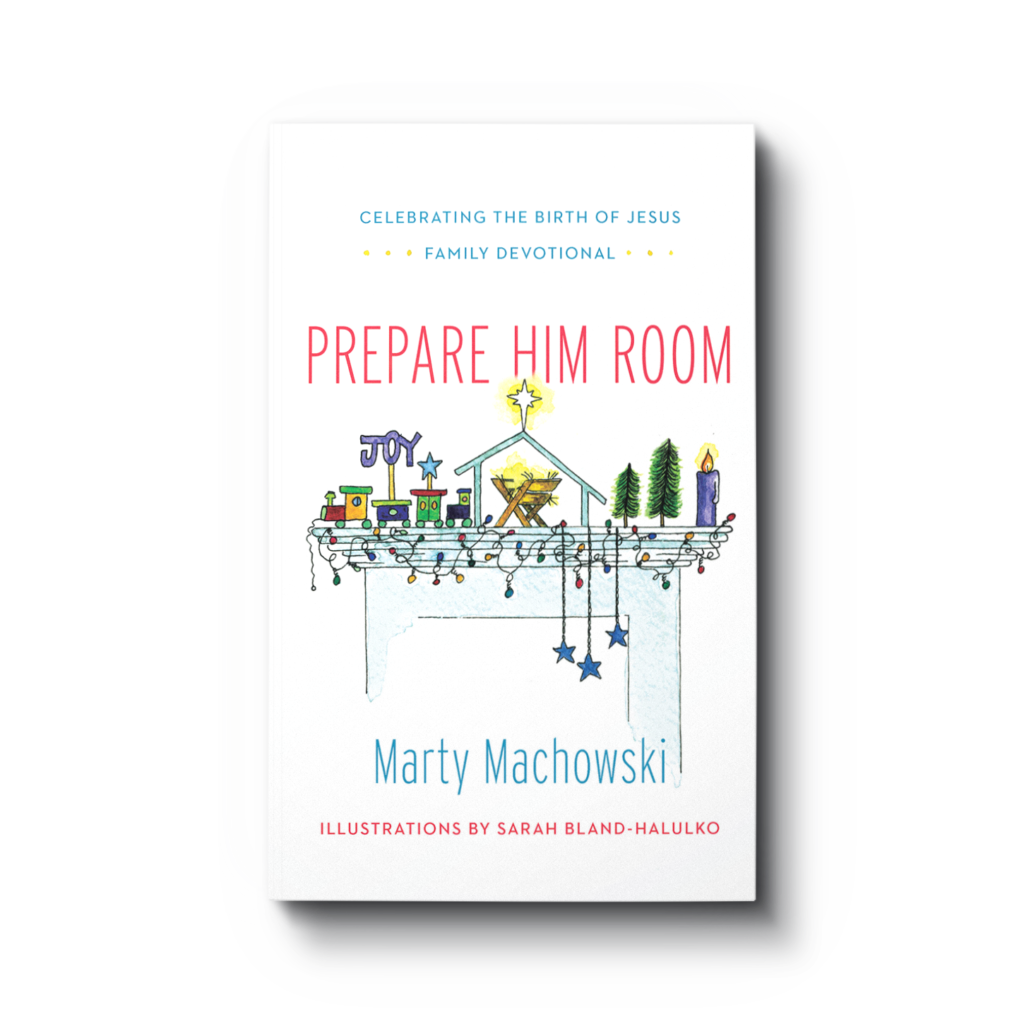A few months ago, my husband and I were on a road trip. The host of the talk radio show we had tuned into asked callers to name what they thought was the most underrated movie. Everyone had different answers. Our answer? The Book of Eli. Don’t get me wrong! I’m not recommending it for a family movie night. It’s a post-apocalyptic, violent film, but it’s also full of Christian themes which I can’t explain without spoiling it.
One Unforgettable Scene
There is one scene I have never forgotten—and it has changed the way I think about giving thanks. Eli, the hero of the film, is protecting a book—it’s the only book of its kind left in the dystopian world. Eli encounters a warlord who knows that the book is powerful and who will stop at nothing to get his hands on it. He puts Eli into a room and sends a young woman he has enslaved into Eli as a bribe. Food is delivered and, instead of taking advantage of the young woman, Eli holds out his hand, takes her hand, and thanks God for the food. Then they eat. She has never experienced anything like it.
Later she sits down with her mother—also abused by the warlord—at a meal. She tells her mother to wait, grabs her hand, and gives thanks.
A Simple Acknowledgment of God’s Gifts Spreads
What a picture of how contagious it is to look up to God in the worst times and places and thank him for what he has given. Eli’s prayer brought God’s grace into devastated lives.
God’s grace comes to us when we stop and give thanks. And then it takes hold of hearts and spreads. It’s a steady rhythm that we can rely on through the storms of life. Where have you given thanks? For us, the answer is wherever we have broken bread—marriages, births, deaths, countless family dinners, church services here and all over the world, with those who were rejoicing and with those who were grieving. At all times and in all kinds of places, we have held hands and given thanks.
David Powlison said that before Jesus came, God’s people had two categories of sacrifices—one to cover sins and one to give thanks. Now we have Jesus who covers our sins and who is our provider. Because of him we always have something to give thanks for.
When our children were young, we sang our thanks. Now we do the same with our grands. Together we sing, “God we thank you, God we thank you, for our food, for our food. We are very thankful, we are very thankful, God is good.” I confess there have been many times that it was hard to sing with gusto, “God is good.” I sang anyway—I knew it was true even though it didn’t feel true right then. Jesus giving himself for us so that every morning his mercies are new, proves it’s true. We rely on Jesus to keep the rhythm of thanks going.
The Leaves of the Tree Are for Healing
Ezekiel prophesies that there will be a trickle of water starting from the temple that will grow into a deep river. Every place the water touches is changed—life grows. It’s a picture of how the world will be transformed, how we will be transformed by the grace of God flowing into our lives. Trees grow alongside the river. Their leaves are for the healing of the nations (Ezekiel 47:12). This November as the leaves fall, and as we gather together to break bread and give thanks, let’s remember that there is a more powerful force at work in this world than all the evil we see. God himself brings healing. And we, in turn, bring God’s healing with us as we say our simple prayers of thanks. God is invited into all rooms and all places. When that happens, the healing begins and spreads. Gratitude is contagious.








